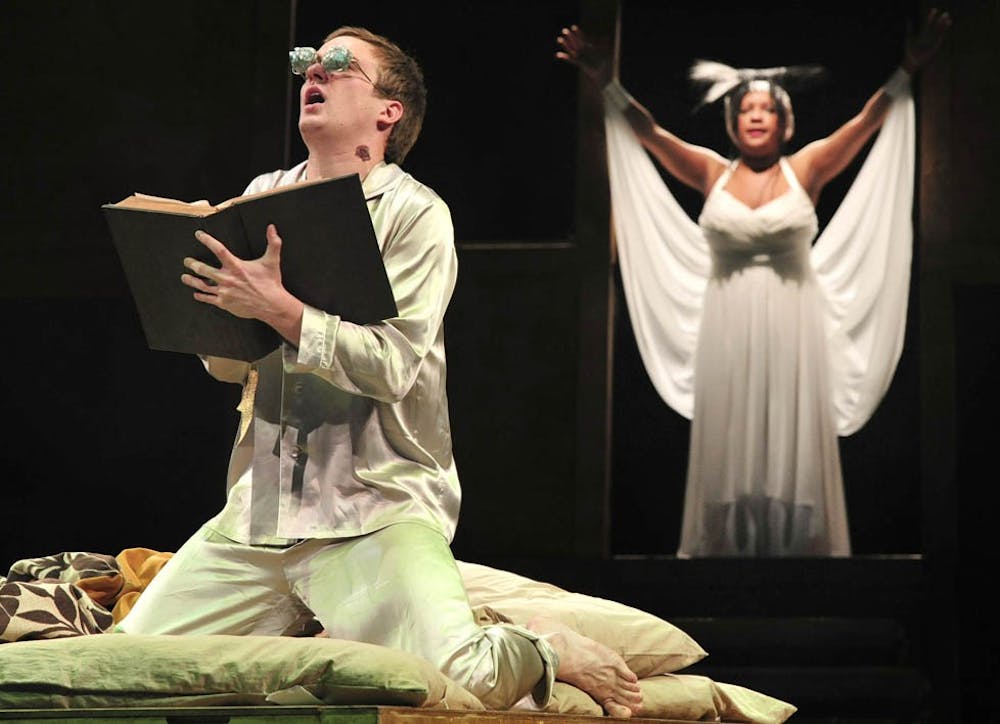Fifteen years ago, one play tore a city in two.
It was March 1996. A Charlotte man, outraged that the Charlotte Repertory Theatre would be producing Tony Kushner’s “Angels in America,” printed a copy of the script and read its most challenging scenes at a televised city council meeting.
At UNC, more than a decade later, PlayMakers Repertory Company is presenting the same award-winning story of disease, sexuality and change for the first time in the company’s history.
“Angels in America” follows the story of two couples in AIDS-ravaged New York City in the 1980s — one straight and one gay.
Joseph Haj, producing artistic director of PlayMakers, said that “Angels in America” may be the most important show that PlayMakers ever puts on.
Though he knows many people may be upset by its controversial nature, Haj — along with the cast and crew — are hoping to ignite fresh conversation, especially among young adults, about AIDS and sexuality.
Haj and Kushner will have a public dialogue on April 10 in Memorial Hall to discuss the play.
Jeffrey Mea?nza, who plays Louis Ironson, a partner in the gay couple, called “Angels in America” the “most important play in the last 50 years.”
“It’s a deceptive play,” Mea?nza said. “You have no idea where it’s going to take you.”



